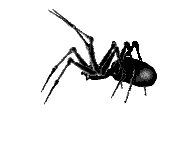Practice site - RAH

What is the Internet?
A global network connecting millions of computers. More than 100 countries are linked into exchanges of data, news and opinions. The Internet is decentralized by design. Each Internet computer, called a host, is independent. Remarkably, this anarchy by design works exceedingly well.
There are a several ways to access the Internet. The connection may be by phone line, cable, wireless or satellite to an online service, such as America Online or, most commonly, via a commercial Internet Service Provider (ISP) .
The Internet is not synonymous with World Wide Web. 
What is a web site?
A web site is a collection of electronic pages that reside on a 'web server' - a computer that is capable of servicing http or ftp requests. The files are generally formatted in HTML (Hypertext Markup Language) that can contain text, graphic images, and multimedia effects such as sound files, video and/or animation files, and other programming elements such as Java and JavaScript. A website has a specific web address and each file has a unique name which, combined with the unique name for the website allows the files to be identified and sent to a requesting browser. The multitudes of Websites on servers around the world constitute the World Wide Web.
What is HTML?
An acronym for Hyper Text Markup Language.
HTML is the computer language used to create hypertext documents, allowing connections from one document or Internet page to numerous others. HTML is the primary language used to create pages on the World Wide Web.
HTML codes are interpreted by the web browser to format documents in a particular way. HTML is not a static coding language. Programmers invent new codes all the time and browser companies update their browsers regularly in order to make them capable of interpreting the new codes.
What is a browser?
Short for Web browser, a software application used to request, locate, collect, assemble and display information from digital files residing on computers around the world, A browser can display graphics as well as text. In addition, most modern browsers can present multimedia information, including sound and video, though they require plug-ins for some formats.
Popular browsers include Internet Explorer, Firefox, Safari, Camino, and Opera.
What is a web server?
A computer that delivers (serves up) Web pages.
A software program that transforms an Internet-connected computer into a machine capable of hosting Web pages. It allows Web browsers to retrieve files from its hard drive when it is connected to the Internet. The Web server listens for requests from Web browsers and upon receiving a request for a file sends a copy back to the browser on the requesting computer.
What is FTP?
FTP is an acronym for File Transfer Protocol. As the name suggests, FTP is used to transfer files between computers on a network, such as the Internet . You can use FTP to exchange files between computer accounts, to transfer files between an account and a desktop computer, or to access software archives on the Internet.
Fetch is a popular FTP program for the Macintosh platform.
What is a Firewall?
A system designed to prevent unauthorized access to or from a computer or a network. Firewalls can be implemented in both hardware and software, or a combination of both. All messages entering or leaving pass through the firewall, which examines each message and blocks those that do not meet the specified security criteria. A firewall is considered a first line of defense in protecting private information. For greater security, data can be encrypted.
What is an IP Address?
An identifier for a computer or device on a TCP/IP network. Networks using the TCP/IP protocol route messages based on the IP address of the destination. The format of an IP address is a 32-bit numeric address written as four numbers separated by periods. Each number can be zero to 255. For example, 1.160.10.240 could be an IP address.
Within an isolated network, you can assign IP addresses at random as long as each one is unique. However, connecting a private network to the Internet requires using registered IP addresses (called Internet addresses) to avoid duplicates.